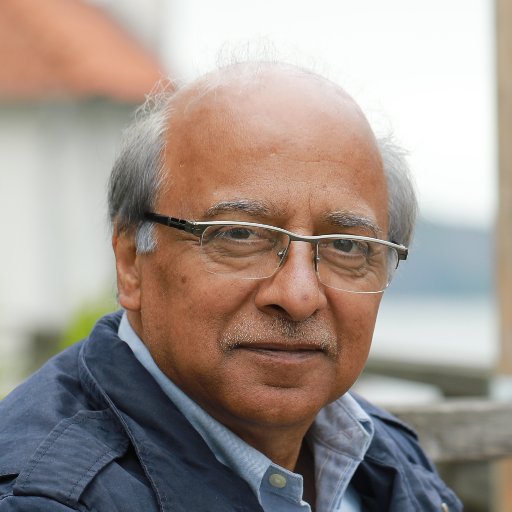Imtiaz Gul

The BJP-controlled administration of India-controlled Jammu & Kashmir recently took two important policy decisions which reflect BJP’s continuing ingress into Kashmir and will most likely entail far reaching demographic and socio-economic consequences for the Kashmir region as much change and pain as the Israeli settlements have meant for the besieged Palestinians.

The amendment to the Control of Building Operations Act, 1988 and the J&K Development Act, 1970 will allow the state to notify any areas in J&K as “strategic areas” and thus pave way for the Indian armed forces to carry out unhindered construction and other related activities etc they deem necessary.
Secondly, and equally alarming, is the J&K Affordable Housing, Slum Redevelopment and Rehabilitation and Township Policy, 2020. The target of this new policy is to come up with 2 lakh houses. The J&K administration has set an initial target to construct one lac dwelling units over the next 5 years.
What does this mean for Kashmir as whole? Colonization of Muslim-majority Kashmir through forced migration and award of residence to non-Kashmiris the way it happened in Palestine and most central Asian republics under the former Soviet Union?
Firstly, the lands or properties which house Indian security forces ( existing temporary camps / cantonments of the Indian armed forces located in various areas (which are notified as strategic areas) or where new camps/ cantonments they think is important will be formally acquired.
This would turn these areas into permanent structures and thus create formal security and residential areas (cantonments and residential localities.
As of now, only a few camps are treated as family stations. The new edict would allow new residential blocks for the troops and their families . Many camps currently are based in private properties like orchards, houses, state properties and thus temporary. From July 18, 2020 onwards, an entire area can be designated as strategic area which can be taken over and developed for the use of armed forces and their families etc.
Secondly, the J&K Housing, Affordable Housing, Slum Redevelopment and Rehabilitation and Township Policy, 2020 will allow non-Kashmir private sector to step into Kashmir’s real estate development/construction sector. According to an official statement, the policy envisages seven models of housing, ranging from “in-situ slum redevelopment to integrated township.” These dwellings and townships, as per the new policy, will be built through public-private partnership which means housing construction companies and private builders will be contracted for the execution.
There will also be a scheme for rentals housing “in which EWS families will be given dwelling unit on license basis for occupation and use for a particular period on making initial deposit and monthly charges”.
Non-Kashmiri government and military officials, new settlers plus medium to long-term vacationers appear to be the major beneficiaries of the new policy.
Thirdly, the BJP-inspired administrative actions seem to be designed to also bait local stake-holders – affluent Kashmiri families, businessmen, investors and those in the construction business – into the main fold with the ultimate hope of neutralising anti New-Delhi political and social groups.

Fourth, though greater details of this new housing policy are still unknown, yet based on the available information, it is quite obvious that this Housing policy too is a major step forward to push the agenda that the BJP unrolled though the blatant annexation, and thereby elimination of the special status of Kashmir, on August 5, 2019. The new policy is logical next step – as far as BJP is concerned – after the abrogation of Article 35-A that dealt with domicile and property ownership for non-Kashmiris.
Fifth, all this is happening to the context of absence and silence of politics in Kashmir; Amit Shah, the home minister himself conceded that over 7000 Kashmiris including three ex chief ministers and Hurriyat leaders are in jails or protective custody. Kashmiri opposition is totally muzzled and politics virtually at a standstill, with even pro-New Delhi parties such as the PDP and Muslim Conference confined to their homes.
These political groups and personalities like Saeed Mufti are the most hurt following the annexation and occupation plan because they have been the flag-bearers of New Delhi in Jammu and Kashmir but were left shocked and humiliated after the militarisation of the valley through the massive August 5 operation.
Lastly, critics are equating the silence of most Kashmiri leaders, although they are all restricted to jails or house arrests , as the abdication of responsibility vis a vis the new housing regulations.
BJP and its local allies are obviously using bureaucracy and the nearly 800,000 omni-present security forces as instruments to enforce and consolidate the annexation plan.

India’s high-handed ingress into Kashmir to engineer its demography continues unchecked. And its western patrons, who usually spare no opportunity in running down countries such as Iran, Turkey and Pakistan for alleged violations of the UN human rights charter, watch on silently, subdued by geo-strategic and commercial considerations. They look away from the sad developments as much as they have done in the case of Israel, which has killed, maimed and displaced scores of Palestinians to carve settlements for its own Jewish citizens.



